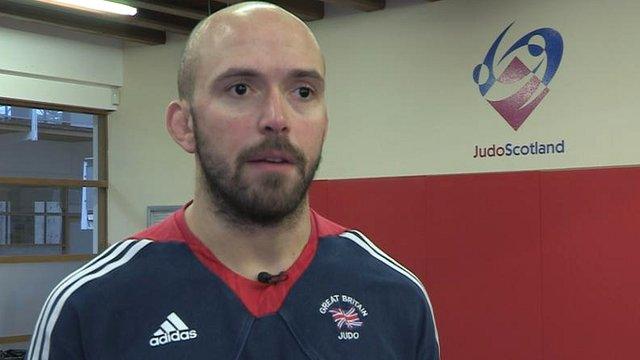Sam Ingram targets European and Paralympic judo gold
- Published
Interview: Paralympic judo player Sam Ingram
IBSA Judo European Championships |
|---|
Venue: Multiusos Pavilion of Odivelas, Lisbon Dates: 25-30 November |
Coverage: BBC Sport website |
"The losses are much deeper than the highs of the wins," says Sam Ingram. "You get a little bit of relief from the wins."
Such is the pressure of top-level sport and the standards the visually impaired judo player sets himself.
Yet Ingram, 30, isn't complaining. It's clear he's doing something he loves at his base at Judo Scotland's national training centre in Ratho, and beyond.
This week he flies with the rest of the Great Britain team to the IBSA Judo European Championships in Lisbon.
There he will defend the 90kg title he won in 2011 and 2013. Heading to the Rio Paralympics as European champion would be a boost as he tries to complete his Paralympic set after clinching bronze in Beijing in 2008 and silver at the London Games.
Ingram has fully recovered from a cartilage tear on his shoulder, aggravated during the IBSA World Games in South Korea in May.
In Seoul he defeated the reigning world champion, American Dartanyon Crockett, in 17 seconds with a strangle, but lost in the final on penalties to Georgia's Zviad Gogotchuri.
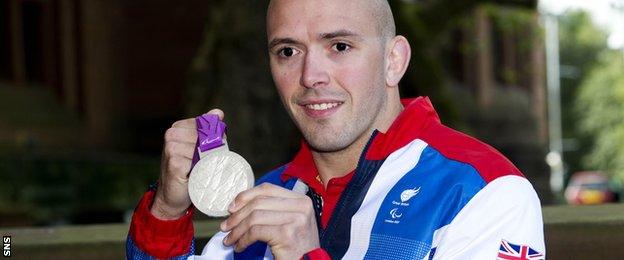
Ingram won a silver medal at the London Paralympics in 2012 to go with the bronze he won in Beijing four years earlier
Declaring himself "ready" for Lisbon, he adds: "There's a good chance I could win it but there's a good chance I could get a silver or a bronze.
"Judo is a sport in which anything can happen but that's why we like doing it.
"At tournaments things can go well for you but you also have to make things go badly for your opponent.
"You have to put yourself in the best position possible to win and see what happens."
Originally from Coventry, Ingram moved to Edinburgh to further his judo career. At Ratho, west of the city, he is coached by Olympians and Commonwealth Games medallists David Somerville and Euan Burton.
He says of the latter, who is assistant high performance coach with the Sport Scotland Institute of Sport, that "anyone in the world, at any level, could learn something from Euan".
Ingram was born with conal dystrophy, which affects his range of vision and his ability to see colours.
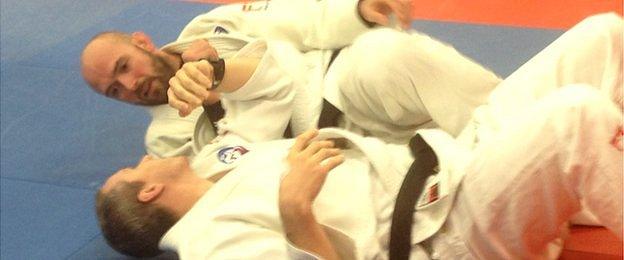
Sam Ingram engages in some work on the mats with Euan Burton
"We all try to make the playing field level," he says of his fellow visually impaired judoka.
"You don't want to take advantage of somebody else's disability just to win. It's sport, it's not life and death."
Ingram counts among his strengths his ability to counter big attacks and his mat work.
He says: "I am good in the newaza, which is similar to jiu-jitsu, where you are arm-locking people and strangling. I am a strong all-rounder but I do like to score big techniques, but everyone does."
His focus in 2016 will be to win gold in Rio, for which he has already gathered enough qualification points to make the GB team.
"I can definitely complete the set," he says.
"I wouldn't bet my life savings on it, because it's sport, it's judo. For Rio, I'm going to do everything possible to try to win it."
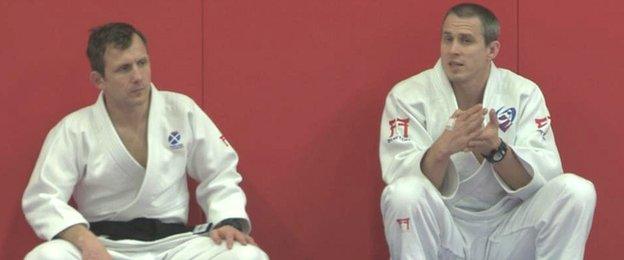
Sam Ingram benefits from the coaching of David Somerville and Euan Burton at Ratho
Part of his preparation has been to ditch taking part in competitions for able-bodied athletes.
He competed in them before and after the London Paralympics but adding these tournaments to those for visually impaired players resulted in him sustaining too many injuries.
Burton praises Ingram's work rate and is "confident of a good result in the Europeans".
He adds: "He is a remarkable trainer and he has remarkable powers of recovery so even surgery that might take your normal human being a couple of months to get over, Sam can push back pretty quickly.
"As soon as he came off the mat in London [in 2012] the goal was to go one better.
"He hadn't been doing performance judo for very long when he got his bronze in Beijing, and a silver in London but it wasn't the result Sam was wanting or some of the crowd was expecting.
"We're aiming for gold in Rio but it won't be an easy task."
One of his rivals for gold will be Gogotchuri, who Burton says has beaten six of the top-10 ranked players in the world in able-bodied judo.
"He's a good fighter, no doubting," says Ingram. "He's someone who could be a real problem for me in the future, but he's not superhuman.
"I lost to him on two passivity warnings in the Worlds so it's not like he's blowing people out of the water.
"It's like having one of the relay guys from the Jamaican team turn up in your category.
"He's definitely something for me to worry about - but maybe I'm something for him to worry about as well."
- Published23 November 2015

- Published23 November 2015
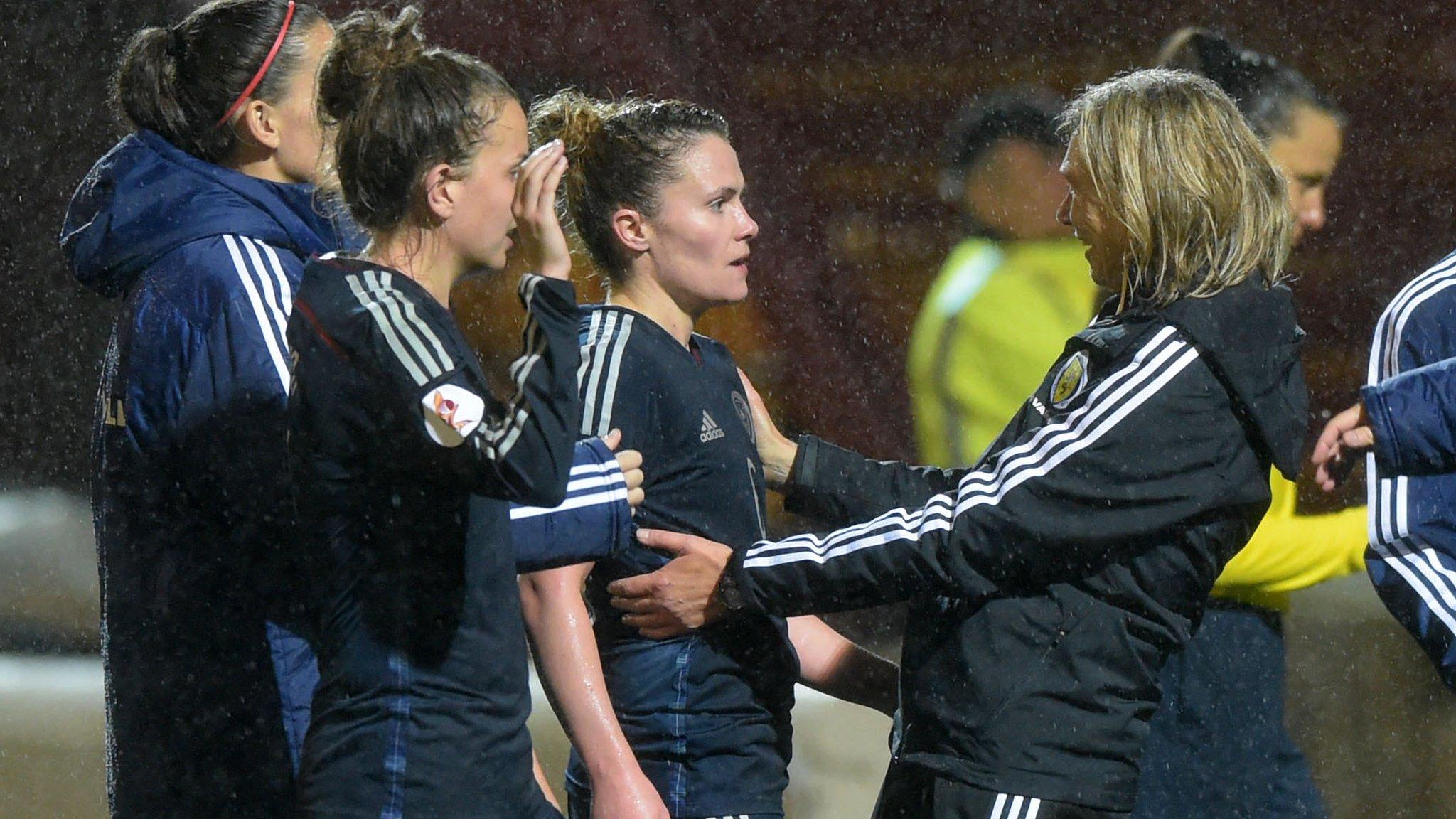
- Published23 November 2015
